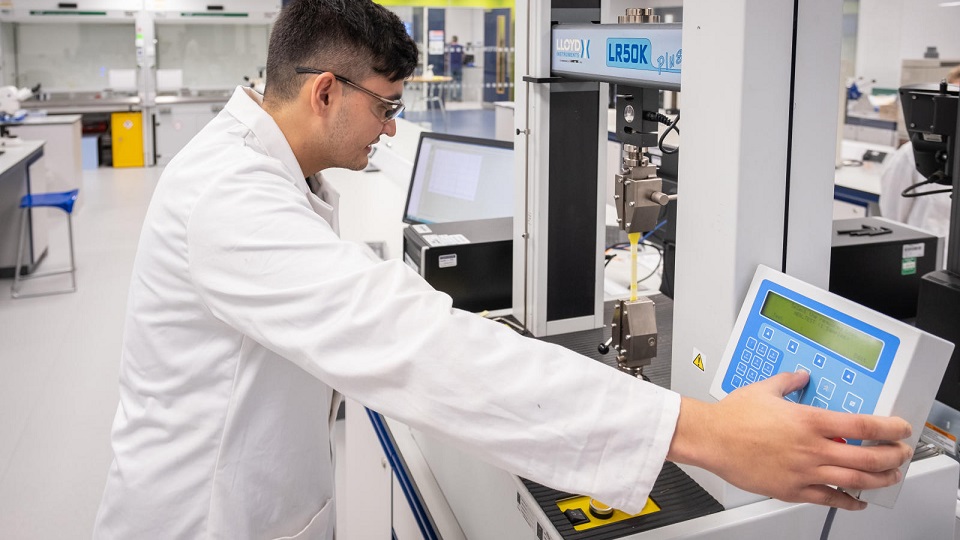WPL 1.11 Materials Testing Lab

Overview
The Materials Laboratory contains a range of specialist equipment for examining and understanding the properties of engineering materials, such as simple beam structures to advanced coated turbine blades.
There is also other characterisation and mechanical testing equipment to determine the properties of advanced materials used in a variety of sectors including aerospace, automotive, and power generation industries.
Often samples are tested here, or made in the S Building Polymer Pilot Plant, and then characterised in the microscopy suite WPL1.10.
What we teach
These labs are primarily used for the teaching of courses in Materials, Automotive and Aeronautical Engineering, and Natural Sciences (pathway-dependent). In these labs you can learn about:
- Mechanical and thermomechanical testing of materials, and small pilot rigs
- Heat treatments
What you learn
This lab enables you to:
- Develop an understanding how different materials behave when stress, strain, and temperature are applied. This is essential for successful engineering projects. By mechanically testing materials, or components, to failure we can learn their limits and capabilities (e.g. Young’s modulus, ultimate tensile strength, yield strength).
Often samples are tested here, or made in the S Building Polymer Pilot Plant, and then characterised in the microscopy suite WPL1.10.
Common Final Year Project work:
- Determining tensile and shear strength of biomedical materials: for example, electrospun mats for wound dressing, or novel hydrogels for medical devices.
Equipment
Equipment in these laboratories includes:
-
(Instron 5944, Lloyds LR50K, Tinius Olsen, TEquipment SM1000)
Universal Testers
- Torsional Testing (TEquipment SM1001)
- Hardness Testing
- Vickers x4
- Microvickers (Mitutoyo) x1
- Brinell (Innovatest) x2
- Rockwell (Mitutoyo) x2
- Furnaces (Carbolite) x2